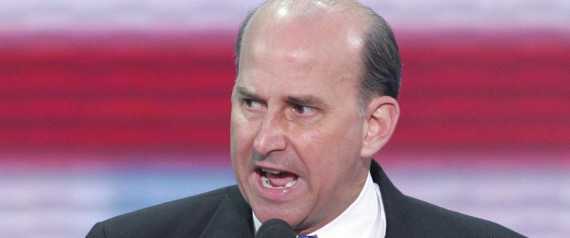Thirty-nine Turks are included in the world’s billionaires list of the U.S. financial magazine Forbes.
Thirty-eight of the Turks were from Turkey and one of them from the Turkish Republic of Northern Cyprus (TRNC).
 Owner of Turkey’s Cukurova Holding, Mehmet Emin Karamehmet entered the list at the 268th place. The Turkish Cypriot businessmen was Suat Gunsel, the owner of Near East University, and was at the 1,140th place in the list including a total of 1,210 billionaires.
Owner of Turkey’s Cukurova Holding, Mehmet Emin Karamehmet entered the list at the 268th place. The Turkish Cypriot businessmen was Suat Gunsel, the owner of Near East University, and was at the 1,140th place in the list including a total of 1,210 billionaires.
There were 28 Turks in the list last year. With 38 businesspeople entering the list, Turkey topped the Middle Eastern and African region.
As last year, Mexican telecommunication giant Carlos Slim Helu topped the list with his 74 billion USD of wealth. His wealth totalled 53.5 billion USD last year.
Bill Gates, the founder of Microsoft, followed Helu with 56 billion USD of wealth, and U.S. investor and businessman Warren Buffet came the third.
Below are the Turkish businessmen and their wealth in the list:
268-Mehmet Emin Karamehmet (Cukurova Holding-4 billion USD)
376-Semahat Arsel (Koc Holding-3 billion USD)
376-Husnu Ozyegin (Fiba Holding-3 billion USD)
393-Rahmi Koc (Koc Holding-2.9 billion USD)
409-Murat Ulker (Yildiz Holding-2.8 billion USD)
420-Ferit Sahenk (Dogus Holding-2.7 billion USD)
420-Sarik Tara (Enka Insaat-2.7 billion USD)
459-Suna Kirac (Koc Holding-2.5 billion USD)
459-Filiz Sahenk (Dogus Holding-2.5 billion USD)
564-Ali Ibrahim Agaoglu (Agaoglu Insaat 2.1 billion USD)
595-Erman Ilicak (Ronesans Insaat-2 billion USD)
692-Kamil Yazici (Yazicilar Holding-1.8 billion USD)
692-Ahmet Nazif Zorlu (Zorlu Holding-1.8 billion USD)
879-Bulent Eczacibasi (Eczacibasi Holding-1.4 billion USD)
879-Ali Metin Kazanci (Kazanci Holding-1.4 billion USD)
879-Tuncay Ozilhan (Anadolu Endustri-1.4 billion USD)
879-Ahsen Ozokur (Yildiz Holding-1.4 billion USD)
879-Deniz Sahenk (Dogus Holding-1.4 billion USD)
938-Ahmet Calik (Calik Holding-1.3 billion USD)
938-Faruk Eczacibasi (Eczacibasi Holding-1.3 billion USD)
938-Mehmet Sinan Tara (Enka Insaat-1.3 billion USD)
938-Mustafa Latif Topbas (BIM-1.3 billion USD)
993-Mehmet Rustu Basaran (Habas-1.2 billion USD)
993-Mehmet Hattat (Hema Endustri-1.2 billion USD)
993-Mustafa Vehbi Koc (Koc Holding-1.2 billion USD)
993-Nihat Ozdemir (Limak Insaat-1.2 billion USD)
993-Sevket Sabanci (Esas Holding-1.2 billion USD)
993-Sezai Bacaksiz (Limak Insaat-1.2 billion USD)
1057-Mubariz Gurbanoglu (Palmali Denizcilik-1.1 billion USD)
1057-Mehmet Omer Koc (Koc Holding-1.1 billion USD)
1057-Yildirim Ali Koc (Koc Holding-1.1 billion USD)
1057-Suzan Sabanci Dincer (Sabanci Holding-1.1 billion USD)
1057-Murat Vargi (MV Holding-1.1 billion USD)
1140-Turgay Ciner (Park Holding-1 billion USD)
1140-Aydin Dogan (Dogan Holding-1 billion USD)
1140-Serra Sabanci (Sabanci Holding-1 billion USD)
1140-Cigdem Sabanci Bilen (Sabanci Holding-1 billion USD)
1140-Mehmet Sepil (Genel Enerji-1 billion USD).
Forbes is an American publishing and media company. Its flagship publication, the Forbes magazine, is published biweekly. The magazine is well-known for its lists, including its lists of the richest Americans (the Forbes 400) and its list of billionaires. The motto of Forbes magazine is “The Capitalist Tool.” Its editor-in-chief is Steve Forbes.
AA
 Celebi Hava Servisi AS (CLEBI), a Turkish airport services company, bid for the rights to operate Brussels National Airport’s ground handling services for seven years, the company said today.
Celebi Hava Servisi AS (CLEBI), a Turkish airport services company, bid for the rights to operate Brussels National Airport’s ground handling services for seven years, the company said today.




